Decoy Flares Size
Decoy Flares Market Growth Projections and Opportunities
The decoy flares market is influenced by several key factors that shape its growth and development. Decoy flares serve as critical defensive countermeasures deployed by military aircraft to divert incoming heat-seeking missiles and protect against enemy threats during combat operations. One of the primary drivers of the decoy flares market is the increasing sophistication of missile systems and the evolving threat landscape faced by military forces worldwide. As adversaries continue to develop advanced missile technologies and seek to disrupt military operations, there's a growing need for effective and reliable decoy flare systems to enhance aircraft survivability and mission success.
Moreover, advancements in decoy flare technology, including developments in flare composition, deployment mechanisms, and electronic countermeasure (ECM) capabilities, have led to innovations in decoy flare systems, driving further adoption across defense forces globally. New generations of decoy flares offer features such as reduced size, weight, and electromagnetic signature, as well as enhanced decoy effectiveness and countermeasure capabilities, enabling aircraft to deploy decoys more effectively and evade enemy threats with greater confidence. This drives demand for decoy flare systems that offer superior performance, reliability, and compatibility with a wide range of aircraft platforms and mission profiles.
Furthermore, the growing emphasis on multi-spectral and multi-platform decoy solutions is driving investment and innovation in decoy flare systems with enhanced capabilities to counter diverse threats and operate in complex electromagnetic environments. Modern decoy flare systems incorporate advanced sensors, algorithms, and expendable countermeasures to detect, track, and defeat various types of threats, including infrared-guided, radar-guided, and laser-guided missiles. This creates opportunities for decoy flare manufacturers to develop integrated solutions that offer comprehensive protection against a wide range of airborne and surface-to-air threats, while minimizing false alarm rates and collateral damage.
Additionally, the increasing demand for decoy flare systems in military aircraft and helicopters is driving growth in the decoy flares market. Military aviation platforms require decoy flare systems that are lightweight, compact, and easy to integrate with existing aircraft systems, while providing effective protection against modern missile threats. Decoy flare systems play a critical role in enhancing aircraft survivability and mission effectiveness by diverting incoming missiles away from the aircraft and disrupting enemy targeting systems. This drives demand for decoy flare systems that offer fast response times, multiple firing modes, and advanced countermeasure techniques to ensure aircraft survivability in high-threat environments.
Moreover, the growing adoption of unmanned aerial vehicles (UAVs) and unmanned combat aerial vehicles (UCAVs) is creating new opportunities and challenges in the decoy flares market. UAVs and UCAVs require lightweight, expendable decoy flare systems that offer compact size, low power consumption, and high reliability to support autonomous operations and protect against emerging threats. Decoy flare manufacturers are developing specialized solutions tailored to the needs of unmanned platforms, including miniaturized decoy dispensers, adaptive countermeasure algorithms, and networked decoy management systems, driving further innovation and investment in the decoy flares market.
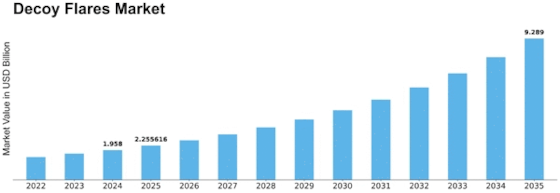


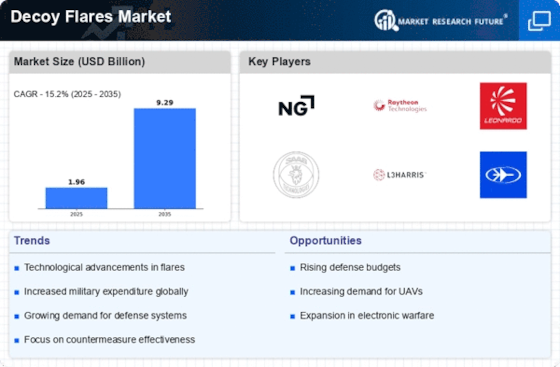
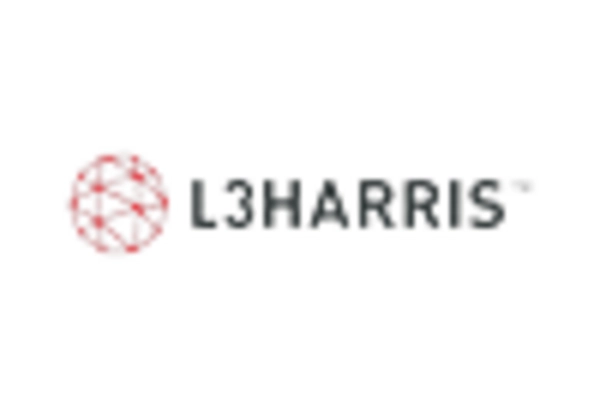
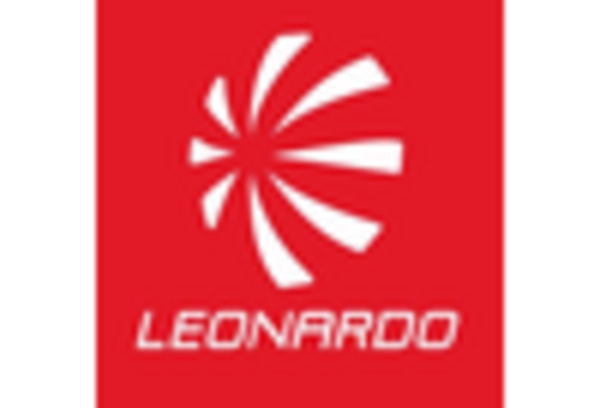

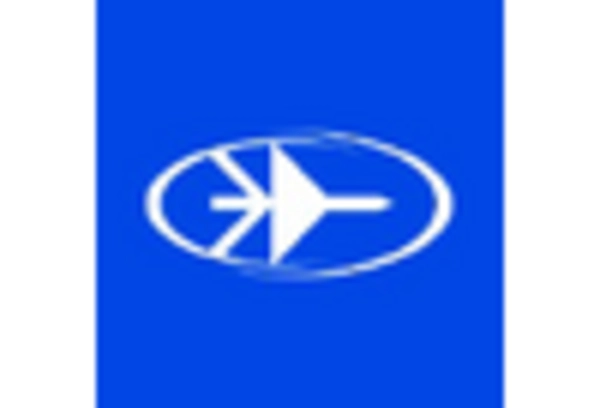

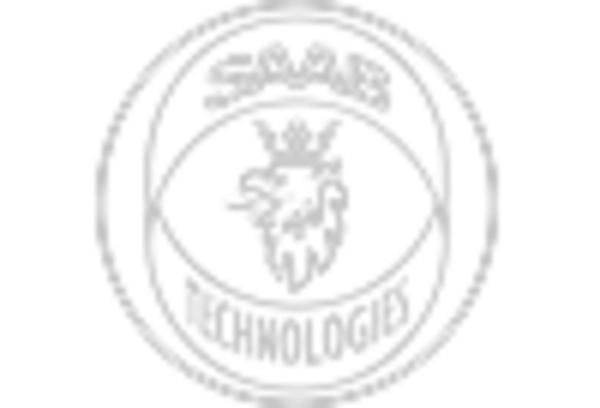









Leave a Comment